Filter by
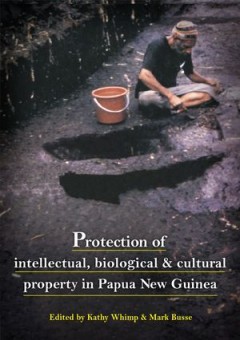
Protection of intellectual, biological & cultural property in Papua New Guinea
Intellectual, biological and cultural property rights are a powerful and debatable topic. They offer the possibility for protection of rights to intangible resources, including the products of knowledge and creativity. The forces of globalisation have made this subject of immediate, international concern. Struggles for ownership of intellectual property occur between and within local and global…
- Edition
- -
- ISBN/ISSN
- 9781922144928
- Collation
- -
- Series Title
- -
- Call Number
- 340 PRO
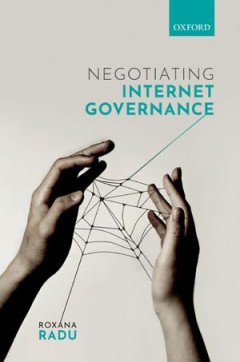
Negotiating Internet Governance
What is at stake for how the Internet continues to evolve is the preservation of its integrity as a single network. In practice, its governance is neither centralised nor unitary; it is piecemeal and fragmented, with authoritative decision-making coming from different sources simultaneously: governments, businesses, international organisations, technical and academic experts, and civil society.…
- Edition
- -
- ISBN/ISSN
- 9780198833079
- Collation
- -
- Series Title
- -
- Call Number
- 340 RAD n
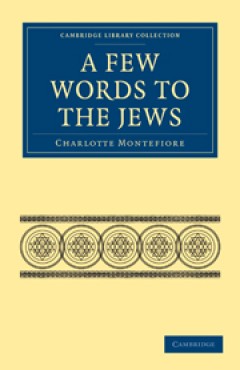
A Few Words to the Jews
Charlotte Montefiore (1818–1854) published A Few Words to the Jews anonymously in 1853. The volume is a collection of essays on Anglo-Jewish life, covering topics including the Sabbath, Jewish women, religious reform and practice, Jewish materialism, immortality, the idea of truth, and religious festivals. The essays, like Montefiore's collection of short stories, The Cheap Jewish Library, an…
- Edition
- -
- ISBN/ISSN
- 9780511751134
- Collation
- -
- Series Title
- Cambridge Library Collection - British and Irish History, 19th Century
- Call Number
- -

A Doubter's Doubts about Science and Religion
This 1889 volume was published anonymously and later ascribed to Robert Anderson, a barrister and theological writer who became Assistant Commissioner at Scotland Yard. Mixing his religious beliefs with his detective skills, Anderson argues for true scepticism to be embraced, comparing the tricks played on people by organised religion and science to the scams of confidence tricksters. Writing f…
- Edition
- -
- ISBN/ISSN
- 9780511700811
- Collation
- -
- Series Title
- Cambridge Library Collection - Religion
- Call Number
- -
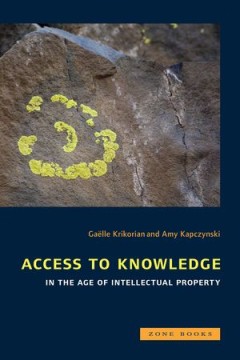
Access to Knowledge in the Age of Intellectual Property
A movement emerges to challenge the tightening of intellectual property law around the world. At the end of the twentieth century, intellectual property rights collided with everyday life. Expansive copyright laws and digital rights management technologies sought to shut down new forms of copying and remixing made possible by the Internet. International laws expanding patent rights threatened t…
- Edition
- -
- ISBN/ISSN
- 9781890951962
- Collation
- -
- Series Title
- -
- Call Number
- 340 ACC

A Discourse on Property John Locke and his Adversaries
John Locke's theory of property is perhaps the most distinctive and the most influential aspect of his political theory. In this book James Tully uses an hermeneutical and analytical approach to offer a revolutionary revision of early modern theories of property, focusing particularly on that of Locke. Setting his analysis within the intellectual context of the seventeenth century, Professor Tu…
- Edition
- -
- ISBN/ISSN
- 9780511558641
- Collation
- -
- Series Title
- -
- Call Number
- -

Creating the Intellectual Chinese Communism and the Rise of a Classification
This book offers a new analysis of the intellectual and the Chinese socialist revolution. Under the Chinese Communist Party, the intellectual was never simply an outspoken scholar, a browbeaten artist, a supportive official, or any kind of person facing an increasingly powerful political regime. The intellectual was first and foremost a widening classification of people based on Marxist thought…
- Edition
- -
- ISBN/ISSN
- 9780520303690
- Collation
- -
- Series Title
- -
- Call Number
- -
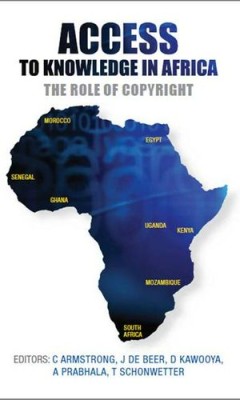
Access to Knowledge in Africa : The role of copyright
The emergence of the Internet and the digital world has changed the way people access, produce and share information and knowledge. Yet people in Africa face challenges in accessing scholarly publications, journals and learning materials in general. At the heart of these challenges, and solutions to them, is copyright, the branch of intellectual property rights that covers written and related w…
- Edition
- -
- ISBN/ISSN
- 9781919895451
- Collation
- -
- Series Title
- -
- Call Number
- 340 ARM a
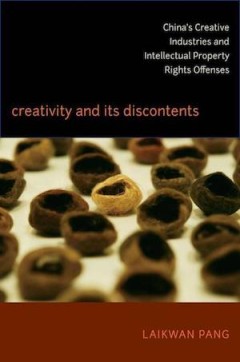
Creativity and its Discontents : China’s Creative Industries and Intellectu…
Creativity and Its Discontents is a sharp critique of the intellectual property rights (IPR)–based creative economy, particularly as it is embraced or ignored in China. Laikwan Pang argues that the creative economy—in which creativity is an individual asset to be commodified and protected as property—is an intensification of Western modernity and capitalism at odds with key aspects of Chi…
- Edition
- -
- ISBN/ISSN
- 9781478091530
- Collation
- -
- Series Title
- -
- Call Number
- 340 PAN c

Tis Nature's Fault: Unauthorized Sexuality during the Enlightenment
The essays in this 1988 volume address sexual phenomena in eighteenth-century Europe that were for one reason or another outside the legal or sanctified systems of acceptability: most notably, unwed heterosexual domesticity, masturbation, prostitution, libertinism, homosexuality, and pornography. The contributors, drawn from England, France, Italy, Holland, and the United States, illustrate the…
- Edition
- -
- ISBN/ISSN
- 9780511629488
- Collation
- -
- Series Title
- -
- Call Number
- -
 Computer Science, Information & General Works
Computer Science, Information & General Works  Philosophy & Psychology
Philosophy & Psychology  Religion
Religion  Social Sciences
Social Sciences  Language
Language  Pure Science
Pure Science  Applied Sciences
Applied Sciences  Art & Recreation
Art & Recreation  Literature
Literature  History & Geography
History & Geography